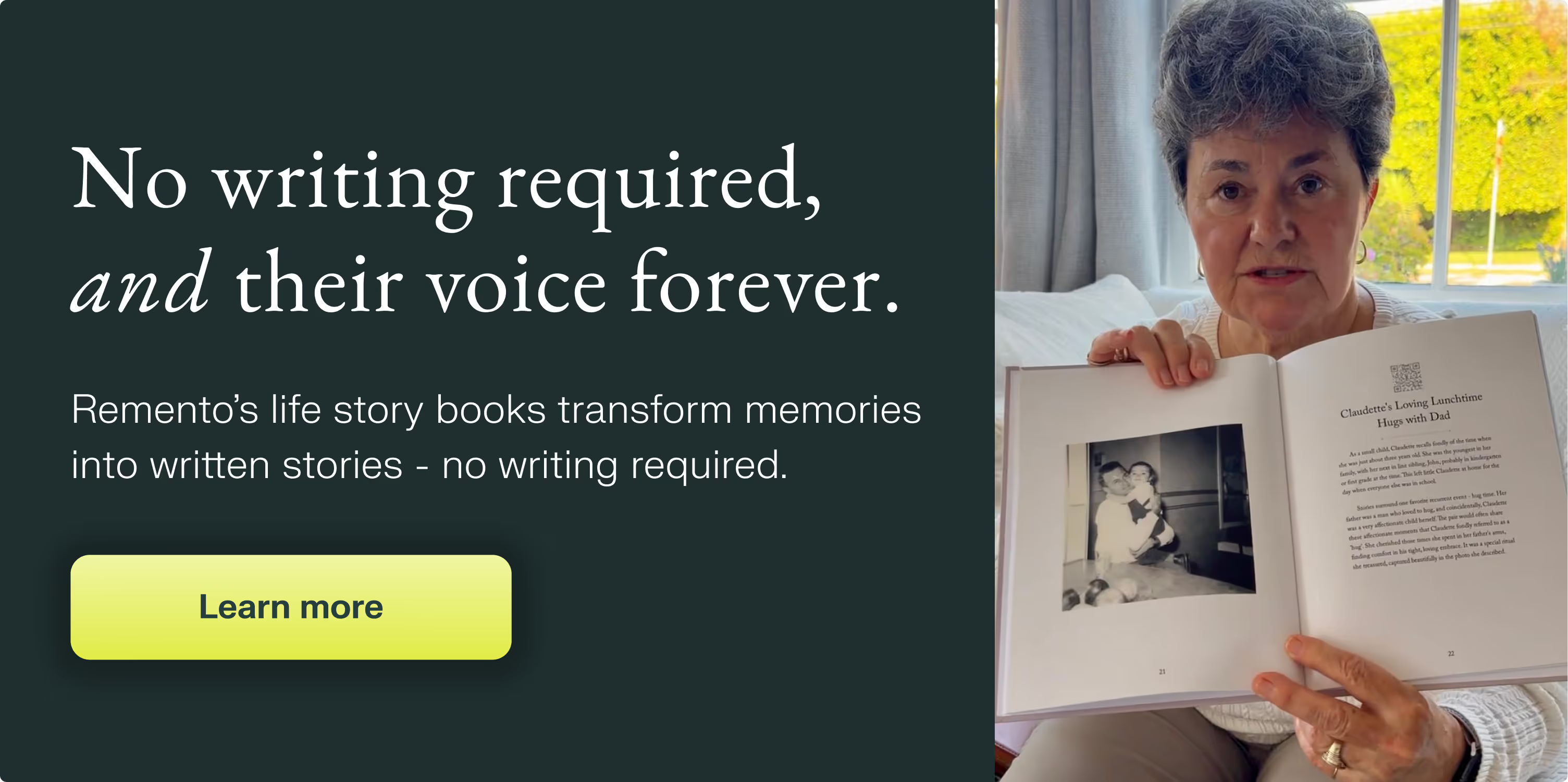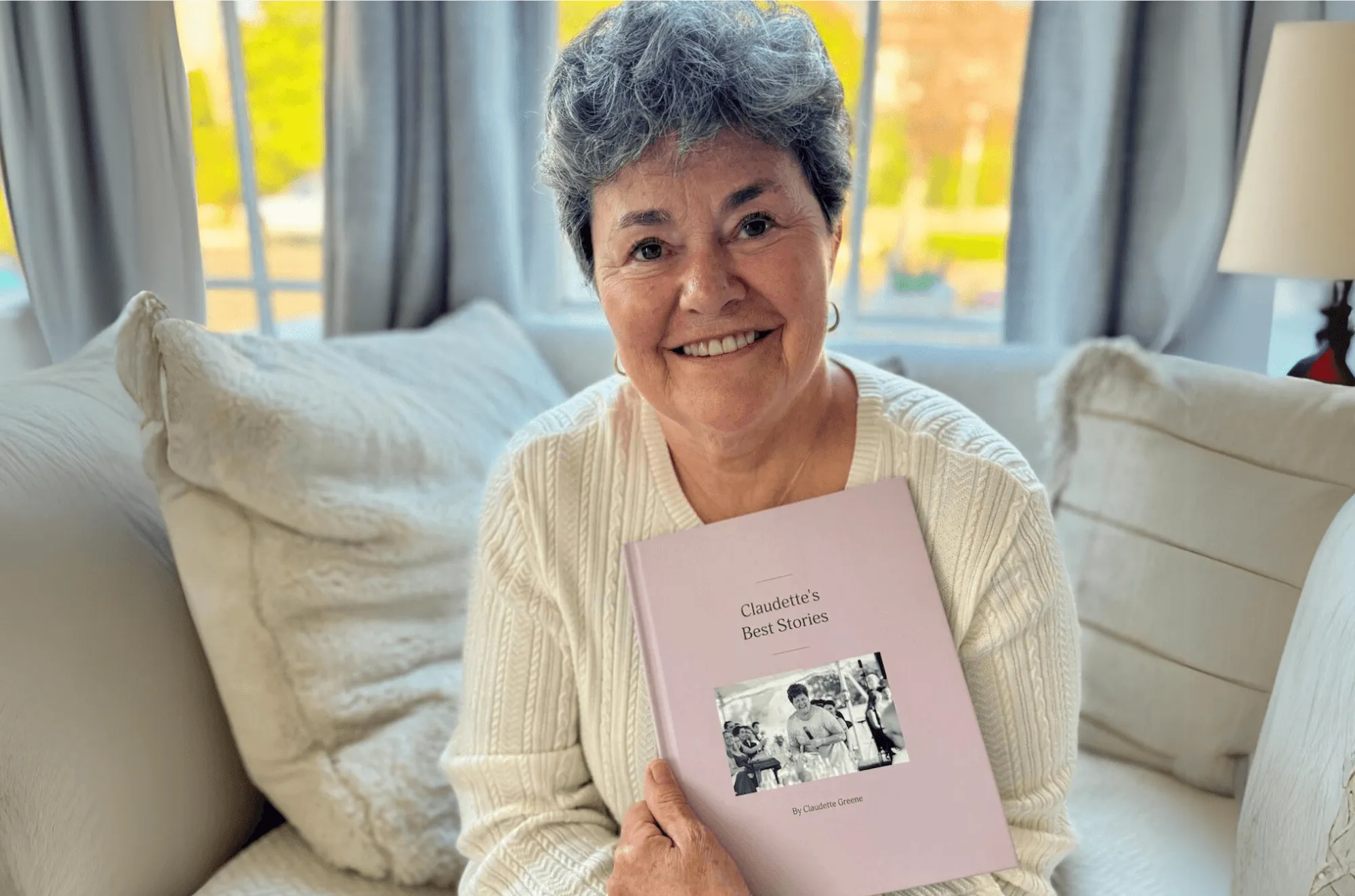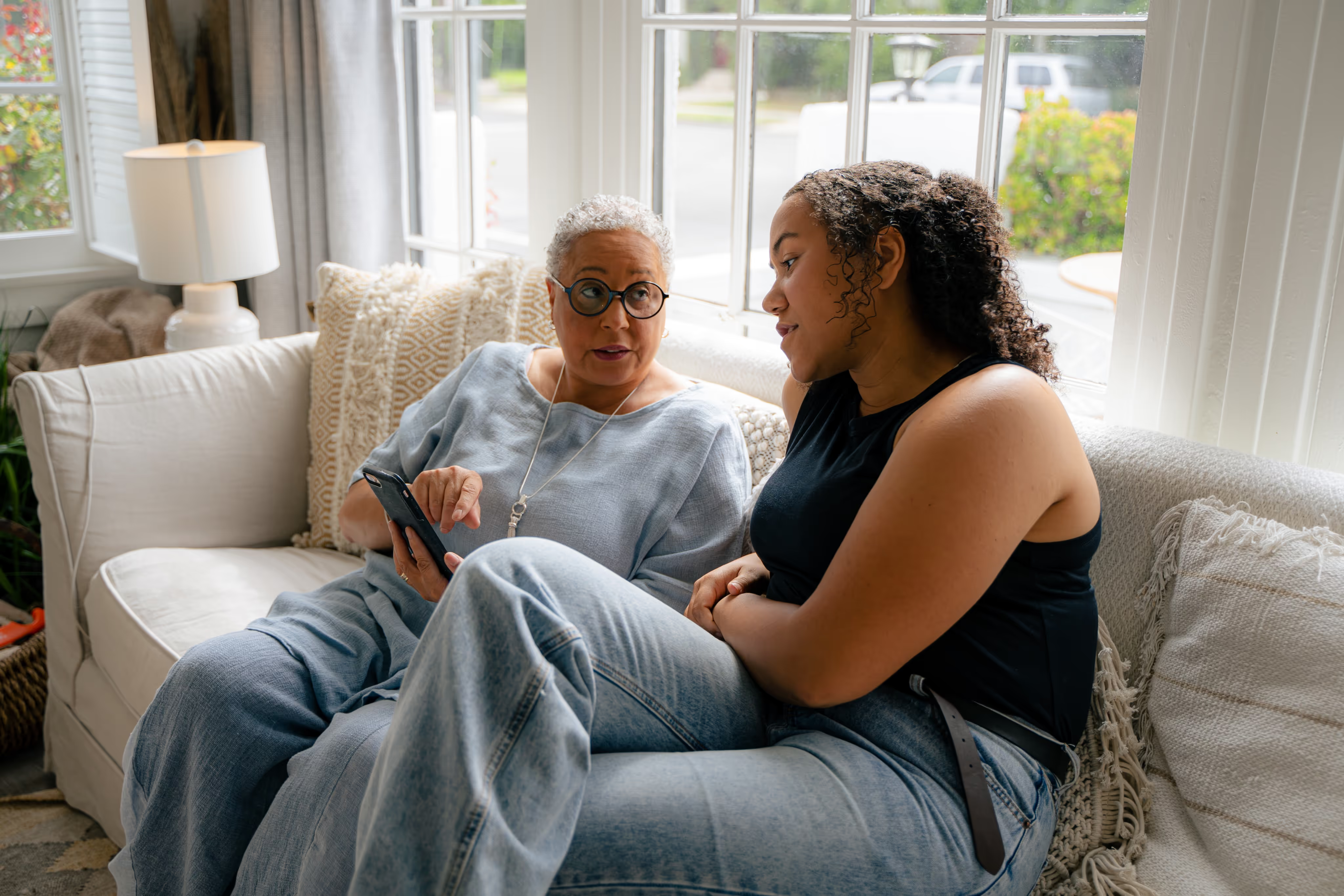Guaranteed to teach you things you never knew.
How To Prepare for an Interview With a Family Member
Three simple steps to prepare for a successful interview with anyone you want to learn more about.
Whether researching your family’s genealogy, looking to forge a deeper connection with a parent, or documenting someone’s life for future generations, personal interviews are a powerful tool to uncover the past. It can feel overwhelming at first, but this three-part guide will help you prepare for and conduct an effective and meaningful discussion.
Part one of this series focuses on preparation, part two covers the interview itself, and part three offers tips for conducting an interview remotely using a video conference tool like Zoom.
Your family interview will be far more effective if you’ve thought about what you want to talk about in advance and collected any related materials. We recommend three key steps for preparing for your interview:
- Conduct background research
- Gather the right materials
- Print out an outline
How to Prepare for a Family Interview
Conduct background research
Who will you be talking to and what do you want to learn? What historic moments or significant life experiences might you want to hear about? Create a rough timeline of the storyteller’s life, including key dates and names. If you know your storyteller fought in WWII or marched in the Civil Rights Movement, familiarize yourself with those topics broadly so you can ask specific questions.

Gather the right materials
Photographs and music can be powerful memory triggers, especially for older relatives. Consider gathering related materials like photos, digitized home movies, songs, letters, or newspaper articles to bring questions to life and spark special recollections. You might even want to ask other family members to share these kinds of items in advance to help you prepare.
Print out an outline
A great blueprint for the conversation will be a helpful resource during the interview. You can share it in advance or just use it to keep yourself organized and the conversation on track. Try focusing on a specific stage of the storyteller’s life and proceeding chronologically. You may not follow the roadmap exactly, but it's a great structure to fall back on.
Choosing the right questions in advance and printing them out (or having them available on your phone) will take the pressure off you in the moment and help you plan what you will discuss. Use a combination of your personal knowledge and expert advice to create a list of questions ranging from lighthearted to sentimental. You’ll be surprised what seemingly unrelated stories a random question can spur!
If you're looking for a tool that will guide you through this experience and record it, check out the free Remento app. It provides both expert-crafted questions and the ability to customize or write your own, and you can even add photos.
Next up: Tips for interviewing a family member.

Their stories, forever at your fingertips
Remento’s life story books turn a parent or grandparent’s memories of the past into a keepsake book for the future - no writing required.
Capture priceless family memories today
Join the thousands of families using Remento to preserve family history, all without writing a word.
.avif)
